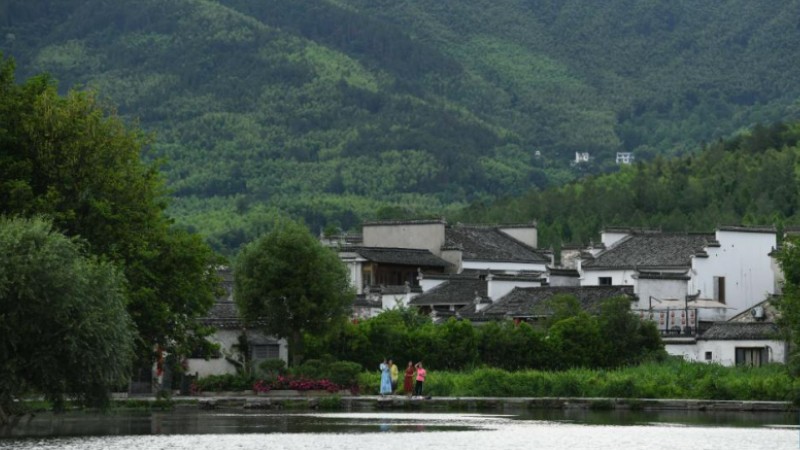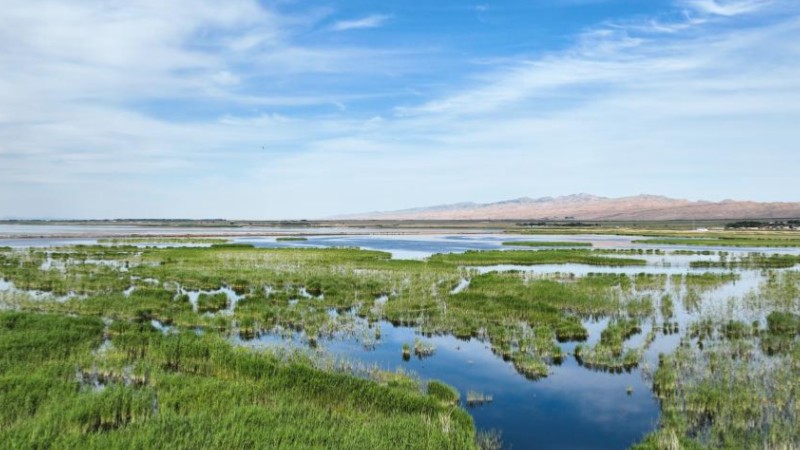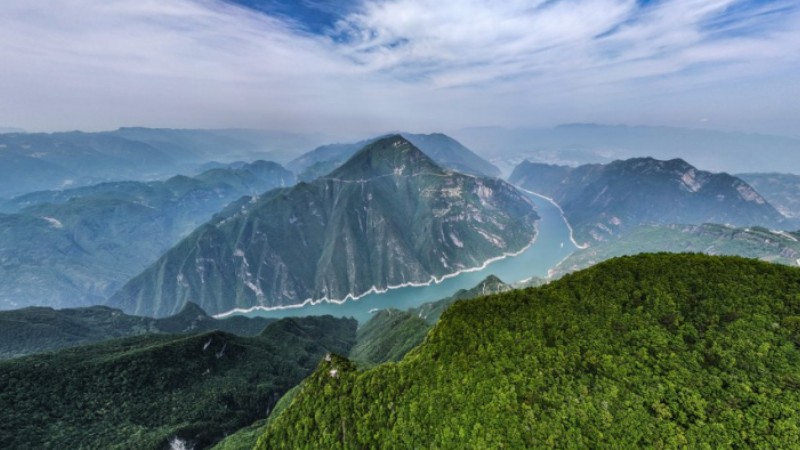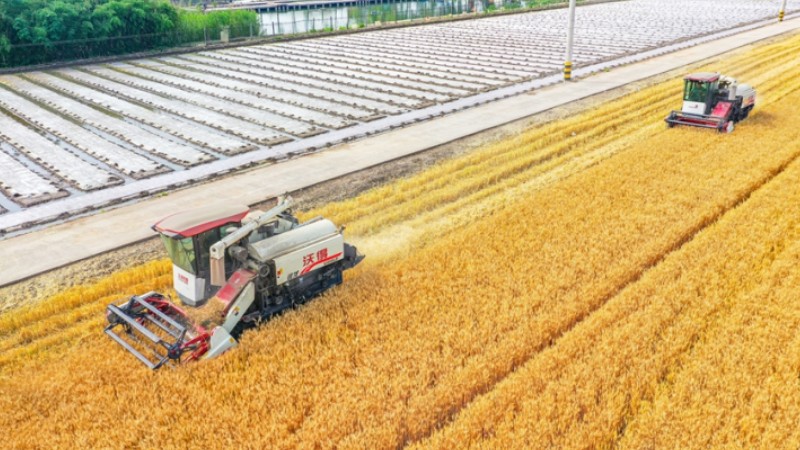Countries in the global south can emulate China's example to create sustainable development
The recent state visit of Eritrean President Isaias Afwerki to China has shed light on the importance of sustainable development and bilateral cooperation. China's journey of modernization has been well-documented, and has inspired many countries to adopt similar strategies in their own paths to development. Countries in the global south, including Eritrea, can emulate China's example to create their own sustainable development models, and find ways to enhance bilateral cooperation.

Chinese President Xi Jinping holds a welcome ceremony for Eritrea President Isaias Afwerki at the square outside the east entrance of the Great Hall of the People prior to their talks in Beijing, capital of China, May 15, 2023. (Xinhua/Wang Ye)
China’s path to modernization
China's path to modernization was not a linear one, but fraught with challenges and setbacks. However, through a long-term focus and commitment to strategic planning, China was able to emerge from a country characterized by poverty and underdevelopment, to becoming one of the global powers of the 21st century.
China's economic reform began in the late 1970s with the establishment of a market-driven economy. This policy shift moved the country away from central planning towards a more open and outwardly focused economic system.
The journey was not easy for China, given the various internal and external challenges in the country. Regardless, China was able to forge ahead and carved out a path towards prosperity.
What could the global south, especially Africa learn from China's experience?
A total of 151 countries from different continents have joined the Belt and Road Initiative (BRI) since it was launched in 2013. The initiative has already brought numerous infrastructure projects, particularly to African countries.
This multifaceted relationship between developing nations has seen some countries and media cast doubts and even use smear campaigns, hoping to drive a wedge among these partners.
With a longstanding history of cooperation between the two, all these countries argue that there are no doubts about China's sincerity in strengthening solidarity and cooperation with developing countries and safeguarding the common interests of the developing world.
At the 20th National Congress of the Communist Party of China in 2022, China promised to promote world peace and development and build a community with a shared future for mankind. "China is prepared to invest more resources in global development cooperation. It is committed to narrowing the North-South gap and supporting and assisting other developing countries in accelerating development," according to the report to the 20th Party congress.
In growing its relations with Africa, China continues to stick to its principles of sincerity, real results, amity, and good faith while following the right approach to justice and interests, further strengthen solidarity and cooperation with developing countries, increase assistance to developing countries, stand shoulder to shoulder with them in overcoming global challenges, and ultimately propel common development.
But, today, the world is plagued by rampant hegemony and rising unilateralism, with certain powers clinging to the Cold War mentality, engaging in subversion and infiltration, imposing illegal unilateral sanctions, waging interventionist wars, and conducting illegal tapping and surveillance. And this has affected Africa. Therefore, as an emerging continent blessed with rich diversity, vast potential, and great vigor and vitality, Africa should be a stage for international cooperation, not an arena for grand power rivalry.
Eritrea and China
The relationship between Eritrea and China dates back to the 1960s. Back then, the CPC extended moral and material support to the Eritreans’ struggle for independence. In fact, in 1967, President Isaias, then a young freedom fighter, took military and other training in Nanjing, China. And after independence, China was one of the first countries to establish diplomatic relations with Eritrea.
In May 24 this year, Eritrea and China celebrated the 30th anniversary of their diplomatic relations. For 30 years, Eritrea and China have enjoyed cordial and productive ties, leading to elevating the relationship to a strategic partnership in 2022.
From May 14 to 19, President Isaias led a delegation in a six-day state visit to China. The visit symbolizes another landmark assertion of the deepening Eritrea-China relations.
In recent years, Eritrea-China cooperation and development programs have strengthened in areas such as infrastructure, education, energy and mining, medical care, and capacity building, which have achieved substantial progress. For example, Eritrea and China recently completed their Third Agricultural Technical Cooperation Project, an initiative that continues to offer great potential for Eritrea’s agricultural and food sector.
Eritrea-China cooperation on agriculture has seen much fusion of Chinese agricultural technologies, knowledge and crop varieties into Eritrean food systems, such as the introduction of sweet potatoes and other climate resistant seedlings. The partnership promises to foster food and nutrition security which are important components of poverty alleviation.
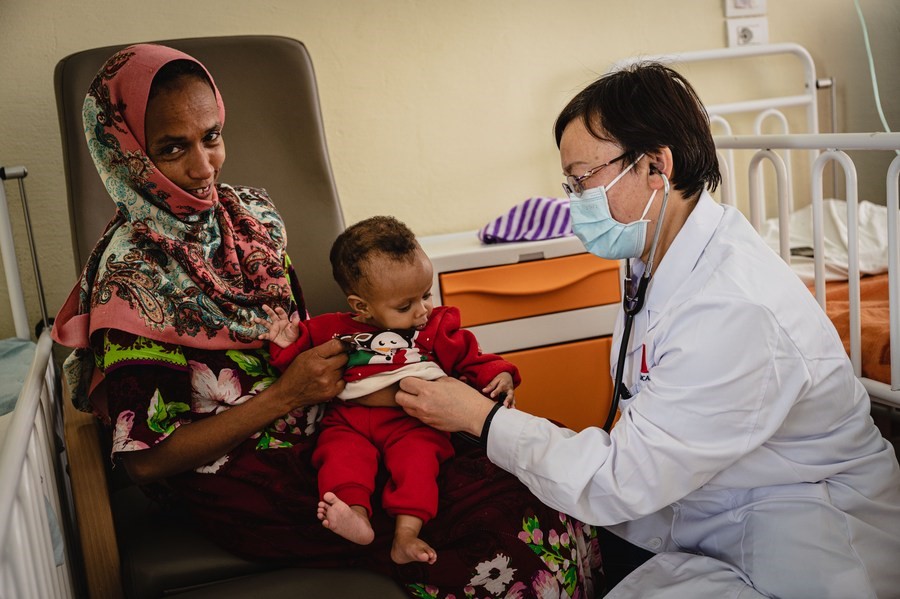
Doctor Zhang Chunyan (right) diagnoses a child at Orotta Hospital in Asmara, Eritrea, on May 9, 2023. Doctors of the 16th Chinese medical team to Eritrea have conducted 346 surgeries and 2,120 medical imaging examinations since they arrived in the East African country on April 17, 2023. Nearly 300 Chinese doctors have provided medical services in Eritrea since 1997. (Xinhua/Wang Guansen)
For a quarter of a century, health-related cooperation between Eritrea and China has contributed to the lives and wellbeing of people nationwide, and also helped to move the country’s health system forward.
China helped Eritrea establish a modern national referral hospital, Orotta Referral Hospital, in the capital Asmara. Since 1997, 16 Chinese medical teams have already served in Eritrea, placing their fingerprints in Eritrea’s achievement in the SDG in the health sector.
Eritrea is also home to a wealth of natural resources like gold, copper, zinc, and potash. If utilized effectively, the exploitation of these resources could lead to the growth of new industries and the creation of wealth for both nations.
Furthermore, the continued implementation of the BRI in Eritrea would benefit Africa as a whole, opening up new transportation avenues and strengthening production sectors.
President Isaias' visit highlighted several key issues that Eritrea wishes to address with Chinese leadership, including trade, industry, finance, and national development.
Another potential opportunity for the development partnership lies in Eritrea. With its strategic location, the country serves as a vital gateway to Africa, the Middle East, and Europe. By leveraging this position, China can tap into crucial trade routes and expand into new markets.
Eritrea’s commitment to self-reliance provides a natural ideological alignment with China's non-interventionist foreign policy, characterized by mutual respect, and mutual benefit.
Eritrea has pursued self-reliance as a guiding principle in its development strategy, focusing on sectors that contribute to its local production and consumption. Given China’s penchant for self-reliance, there are grounds for cooperation between the two countries in various multilateral organizations such as the African Union, where the two countries could reinforce each other’s pursuit of non-interventionist policies.
In conclusion, modernization for countries from the global south and especially Africa is not a straightforward undertaking, as the process of development is influenced by many factors, including geopolitics, infrastructure, and trade policies.
President Isaias' visit to China is an opportunity for Eritrea to build its diplomatic, trade, and infrastructure portfolio and create a developmental strategy that is country-specific.
China, with its vast experience in infrastructure development, can support Eritrea in achieving its development aspirations based on the principles of mutual respect and mutual benefit. With a steadfast focus on economic growth, Eritrea can further chart its own path to modernization.
Amanuel Mesfun is Editor-In-Chief of Eritrea Profile, Ministry of Information, Eritrea
Photos
Related Stories
Copyright © 2023 People's Daily Online. All Rights Reserved.






